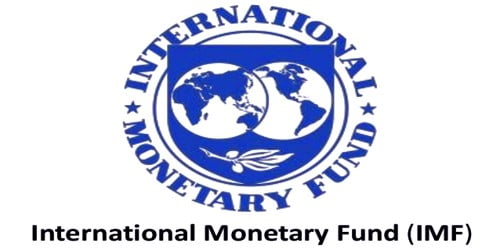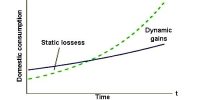The International Monetary Fund (IMF) was established in 1944 as an outcome of the Bretton Woods Conference. The Great Depression of the 1930s and the following policy response lead to a substantial instability in the international economic environment. Now it is based in Washington, D.C., and presently consists of 189 member countries, each of which has a demonstration on the IMF’s administrative board in percentage to its financial weight, so that the most influential countries in the worldwide economy have the majority voting power.
The purposes of the International Monetary Fund (IMF) are to promote international monetary cooperation and facilitate the development and impartial growth of international trade and continuance of high levels of employment and real income. The IMF is headquartered in Washington, D.C., but has offices in Paris, Tokyo, New York, and Geneva.
Objectives – The aim of the International Monetary Fund (IMF_ was to remove the instability in international business and economy by creating a climate of mutual co-operation between countries in economic matters.
The objectives of the IMF included –
(1) Promoting international monetary co-operation,
(2) Facilitating the balanced growth of international trade,
(3) Promoting exchange rate stability,
(4) Providing resources to members with Balance of Payment difficulties
(5) The main objective of the fund is to promote monetary cooperation among the different countries of the world.
(6) The funds aim at providing and establishing multilateral payments and trade system in place of bilateral agreements.
(7) It will try to remove all restrictions and controls on foreign exchange imposed by the It will.
(8) To promote trade constancy, to preserve arranged exchange arrangements among members, and to keep away from aggressive exchange depreciation.
While these were the broad objectives of the IMF at the time of formation, over time, the IMF has adapted to changing world economic environment. Some of the changes in the IMF as reflected in its objectives include –
(i) Enhancing lending facilities to emerging market economies,
(ii) Helping resolve global economic imbalances,
(iii) Monitoring the financial sector and assessing its vulnerabilities o a continuous basis,
(iv) Working towards the eradication of poverty and helping countries achieve Millennium Development Goals,
(v) Working closely with the World Trade Organization (WTO) and other multilateral agencies to assist LDCs in integrating with the multilateral trading system.
Function: Three key functions are –
Regulatory Function: The Fund functions as the guardian of a code of rules set by its (AOA— Articles of Agreement).
Financial Function: It functions as an agency of providing resources to meet short term and medium term BOP disequilibrium faced by the member countries.
Consultative Function: It functions as a center for international cooperation and a source of counsel and technical assistance to its members.
The other major functions of the IMF:
- It functions as a short-term credit institution.
- It provides machinery for the orderly adjustments of exchange rates.
- It is a reservoir of the currencies of all the member countries from which a borrower nation can borrow the currency of other nations.
- It is a sort of lending institution in foreign exchange. However, it grants loans for financing current transactions only and not capital transactions.
- It also provides machinery for altering sometimes the par value of the currency of a member country. In this way, it tries to provide for an orderly adjustment of exchange rates, which will improve the long-term balance of payments position of member countries.
- It also provides machinery for international consultations.
The IMF is one of the most influential and controversial lawmaking bodies in the world. The IMF’s objectives focus on macroeconomic presentation and policies. The IMF’s aim is to put off and remedy global financial crises by encouraging countries to preserve sound economic policies.
















